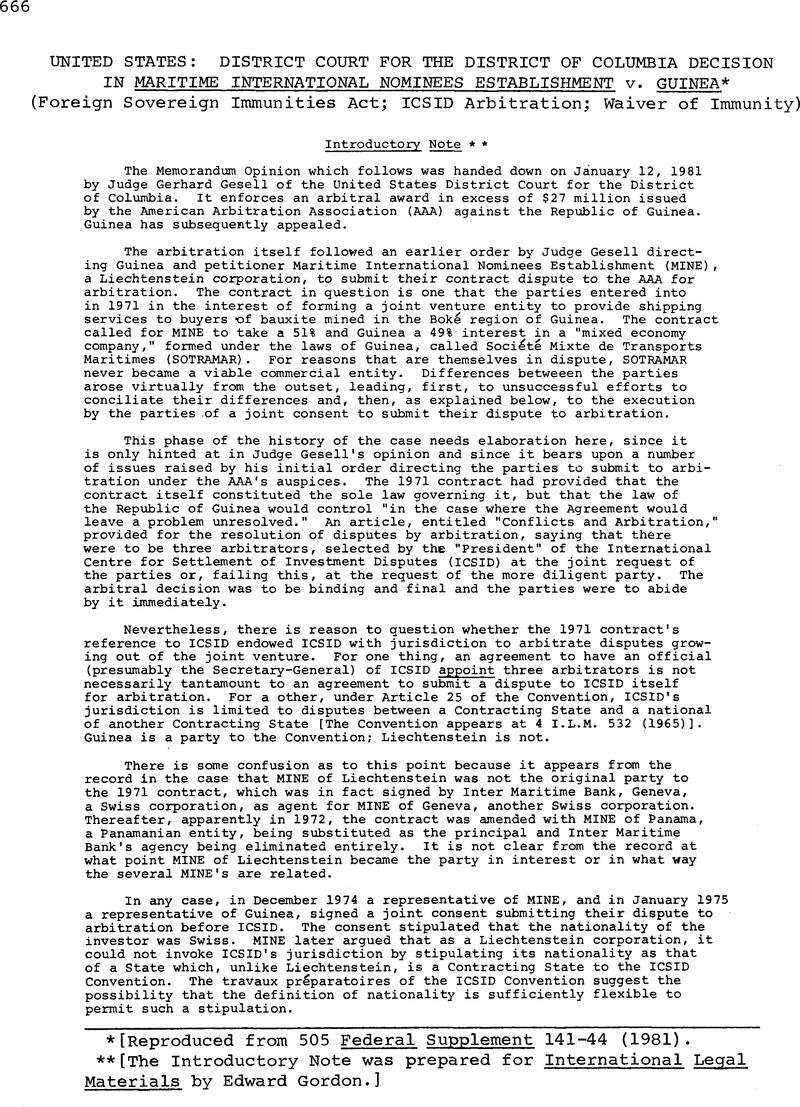No CrossRef data available.
Published online by Cambridge University Press: 20 March 2017

[Reproduced from 505 Federal Supplement 141-44 (1981).
** [The Introductory Note was prepared for International Legal Materials by Edward Gordon.]
1. Article 91 of the Guinean law regarding corporate entities, adopted September 1, 1962, provides that:
The State in a mixed economy company is a shareholder, like any other, and its rights and obligations are those derived from its statute as the shareholder, rather than as the State. Petitioner’s Reply Brief, at 1.
2. The parties dispute whether petitioner could have proceeded to arbitration in the manner contemplated by the contract despite Guinea’s refusal to participate. The Court finds, on the basis of the affidavits and evidence presented that petitioner could not have process the under contract. The Arbitration Act was me only mechanism available to the Court in view of its inability to order the President of ICSID to appoint arbitrators.
3. At hearing, counsel for Guinea was asked whether there was any explanation for Guinea’s repeated failure—despite notice—to respond either in this Court or before the American Arbitration Association. Counsel stated he was unable to present any explanation.
4. The contract does provide, however, a “law of a particular country” to govern the contract, and that is the law of Guinea.
5. The omission of a site for the arbitration cannot be viewed as a mere oversight by the parties. In the agreement between the Republic of Guinea and the Harvey Aluminum Company of Delaware concerning mining of the bauxite that would be carried by SOTRAMAR, the contract expressly states that “[a]rbitration shall take place in Geneva.”